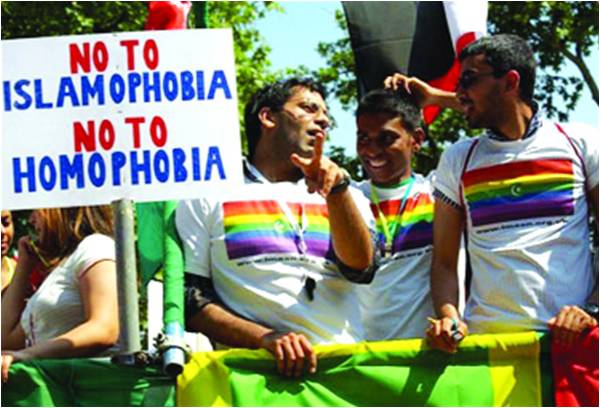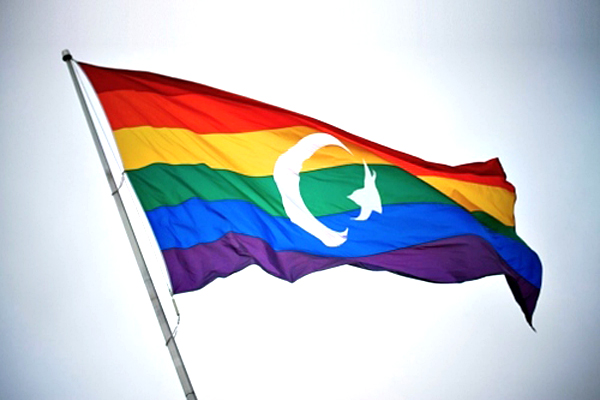
On April 24, 2003 when the United Nations was mulling a resolution on homosexual rights for the very first time, five Muslim countries ganged up against the vote, which was eventually derailed. The resolution titled ‘human rights and sexual orientation’ originally put forward by Brazil at the UN’s human rights commission had the support of 19 other countries.
Among the five homophobic nations was Pakistan. Despite traversing what former President General Pervez Musharraf was touting as ‘enlightened moderation’ it joined hands with Egypt, Saudi Arabia, Libya and Malaysia to force the removal of references to discrimination based on ‘sexual orientation’ in the resolution, rendering it pointless.
The UN General Assembly tried again in 2008, when French and Dutch representatives tabled their resolution to support the human rights of the LGBT community. At that time a 57-country mob led by Syria and the OIC resisted the ‘sacrilegious’ change. Pakistan again joined hands with the homophobes.
On June 17th, 2011, South Africa proposed another resolution in the UN Human Rights Council, citing the global discrimination against LGBT as a leaf out of the racial apartheid that the country clung on to for decades. The historic resolution was passed 23 to 19, with three countries abstaining from the vote. Pakistan, again, was on the wrong side of history.
The UN Human Rights Council went to vote again against anti-gay discrimination last Friday, with 25 of the 47 countries in favour of the resolution, with 14 voting against, seven abstaining and Benin’s ambassador being absent.
[quote]The UN Security Council has moved from a 23-19 count to 25-14 in three years, showcasing the increasing global trend of support for the LGBT community's rights[/quote]
The UN Security Council has moved from a 23-19 count to 25-14 in three years, showcasing the increasing global trend of support for the LGBT community’s rights.
The UN General Assembly’s declaration from 2008 is still open to signature, with the overall count of countries supporting LGBT rights currently standing at 94 with 54 members in opposition; 46 members continue to be neutral.
That Pakistan voted ‘No’ on Friday is hardly surprising, despite the fact that the country led Google searches for “sh**ale sex”, second for “man f***ing man” and third for “gay sex pics” as of last year. But then again that’s a verdict on Pakistanis considering the LGBT community a source of sexual entertainment. Acceptance of them as equals is light years away in a country where heterosexual women are yet to be afforded that ‘luxury’ outside paperwork.

Let’s not forget that the UN General Assembly’s declaration on the Human Rights Council’s resolution wasn’t a vote on a global movement to ‘encourage’ homosexuality or even same-sex marriage. 54 countries of the world, including Pakistan, have officially voted against giving the LGBT community’s basic human rights. Over 25% of the countries in the world continue to refuse to acknowledge them as fellow human beings.
That the most vehement opposition comes from the Muslim world, where punishments for ‘homosexual conduct’ range from life imprisonment to public beheadings, isn’t surprising. This is not to suggest that conventional Islam has monopoly over homophobia, as Archbishop Celestino Migliore’s opposition to the UN declaration in 2008 ratifies. Homophobia around the world is the corollary of religious and cultural taboos, with Pakistan one of the countries firmly shackled by orthodoxy.
Article 377 of the Pakistan Penal Code reads, “Whoever voluntarily has carnal intercourse against the order of nature with any man, woman or animal, shall be punished with imprisonment for life, or with imprisonment of either description for a term which shall not be less than two years nor more than ten years, and shall also be liable to fine.”
That no terms specific to homosexuality are a part of the Pakistan Penal Code – a blend of Anglo-Saxon laws adapted from the Indian Penal Code of 1860 – can be seen as a bit of a mixed blessing; though phrases like ‘unnatural’, ‘obscenity’, ‘public nuisance’, ‘illicit intercourse’, etc, present in a multitude of PPC sections, are interpreted to suppress LGBT folk.
But then again if democracy is dubbed as ‘popular opinion’, 87% of Pakistanis support harsh punishments for homosexuality according to a Pew Survey in 2013.
It is this vehement opposition to homosexuality that encourages serial killers like Muhammad Ejaz to murder random men for being gay. The three murders in April this year sent down shockwaves in the underground LGBT community in Pakistan, with people from the community even deactivating their fake profiles on social media.
The Supreme Court’s ruling to grant Pakistani transvestites equal rights and protection under law was a promising move, but Pakistan still has many proverbial miles to go before it can grant basic rights to all human beings of whatever orientation.
Till then a democratic country will keep giving negative verdicts on who gets to be a human being and enjoy basic human rights within its jurisdiction.
Among the five homophobic nations was Pakistan. Despite traversing what former President General Pervez Musharraf was touting as ‘enlightened moderation’ it joined hands with Egypt, Saudi Arabia, Libya and Malaysia to force the removal of references to discrimination based on ‘sexual orientation’ in the resolution, rendering it pointless.
The UN General Assembly tried again in 2008, when French and Dutch representatives tabled their resolution to support the human rights of the LGBT community. At that time a 57-country mob led by Syria and the OIC resisted the ‘sacrilegious’ change. Pakistan again joined hands with the homophobes.
On June 17th, 2011, South Africa proposed another resolution in the UN Human Rights Council, citing the global discrimination against LGBT as a leaf out of the racial apartheid that the country clung on to for decades. The historic resolution was passed 23 to 19, with three countries abstaining from the vote. Pakistan, again, was on the wrong side of history.
The UN Human Rights Council went to vote again against anti-gay discrimination last Friday, with 25 of the 47 countries in favour of the resolution, with 14 voting against, seven abstaining and Benin’s ambassador being absent.
[quote]The UN Security Council has moved from a 23-19 count to 25-14 in three years, showcasing the increasing global trend of support for the LGBT community's rights[/quote]
The UN Security Council has moved from a 23-19 count to 25-14 in three years, showcasing the increasing global trend of support for the LGBT community’s rights.
The UN General Assembly’s declaration from 2008 is still open to signature, with the overall count of countries supporting LGBT rights currently standing at 94 with 54 members in opposition; 46 members continue to be neutral.
That Pakistan voted ‘No’ on Friday is hardly surprising, despite the fact that the country led Google searches for “sh**ale sex”, second for “man f***ing man” and third for “gay sex pics” as of last year. But then again that’s a verdict on Pakistanis considering the LGBT community a source of sexual entertainment. Acceptance of them as equals is light years away in a country where heterosexual women are yet to be afforded that ‘luxury’ outside paperwork.

Let’s not forget that the UN General Assembly’s declaration on the Human Rights Council’s resolution wasn’t a vote on a global movement to ‘encourage’ homosexuality or even same-sex marriage. 54 countries of the world, including Pakistan, have officially voted against giving the LGBT community’s basic human rights. Over 25% of the countries in the world continue to refuse to acknowledge them as fellow human beings.
That the most vehement opposition comes from the Muslim world, where punishments for ‘homosexual conduct’ range from life imprisonment to public beheadings, isn’t surprising. This is not to suggest that conventional Islam has monopoly over homophobia, as Archbishop Celestino Migliore’s opposition to the UN declaration in 2008 ratifies. Homophobia around the world is the corollary of religious and cultural taboos, with Pakistan one of the countries firmly shackled by orthodoxy.
Article 377 of the Pakistan Penal Code reads, “Whoever voluntarily has carnal intercourse against the order of nature with any man, woman or animal, shall be punished with imprisonment for life, or with imprisonment of either description for a term which shall not be less than two years nor more than ten years, and shall also be liable to fine.”
That no terms specific to homosexuality are a part of the Pakistan Penal Code – a blend of Anglo-Saxon laws adapted from the Indian Penal Code of 1860 – can be seen as a bit of a mixed blessing; though phrases like ‘unnatural’, ‘obscenity’, ‘public nuisance’, ‘illicit intercourse’, etc, present in a multitude of PPC sections, are interpreted to suppress LGBT folk.
But then again if democracy is dubbed as ‘popular opinion’, 87% of Pakistanis support harsh punishments for homosexuality according to a Pew Survey in 2013.
It is this vehement opposition to homosexuality that encourages serial killers like Muhammad Ejaz to murder random men for being gay. The three murders in April this year sent down shockwaves in the underground LGBT community in Pakistan, with people from the community even deactivating their fake profiles on social media.
The Supreme Court’s ruling to grant Pakistani transvestites equal rights and protection under law was a promising move, but Pakistan still has many proverbial miles to go before it can grant basic rights to all human beings of whatever orientation.
Till then a democratic country will keep giving negative verdicts on who gets to be a human being and enjoy basic human rights within its jurisdiction.

